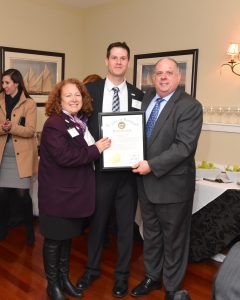Maryland Celebrates Rural Maryland Day In Annapolis
Annapolis, MD – The Rural Maryland Council (RMC) met in Annapolis, Thursday, February 9, 2017, for which Governor Hogan proclaimed as Rural Maryland Day, to meet with key legislators to discuss the challenges affecting rural Maryland communities. “Rural residents are working to provide all of the people in our fine state with food, fiber and fuel. Our rural economies are a critical component of our state’s overall economy,” said RMC Board Chair, Josh Hastings, “Yet, we still face many challenges including high rates of unemployment, poverty, and a lack of access to adequate health care.”
Members of the Rural Maryland Council met with members of the Maryland General Assembly to discuss rural economic development initiatives and continued funding support for the Rural Maryland Prosperity Investment Fund (RMPIF). Last year, for the first time since 2006, RMPIF received $2 million in funding for important targeted investment to promote economic prosperity in Maryland’s traditionally disadvantaged and underserved rural communities. In January, Governor Hogan announced that $4 million will be included in the Fiscal Year 2018 budget for RMPIF. The RMC is hopeful the increased funding for RMPIF will remain in the budget to promote rural regional cooperation, facilitate entrepreneurial activities and support key community colleges and nonprofit providers so that the quality of life in rural Maryland can be advanced over the next several years.
The Rural Maryland Council operates under the direction of a 40-member executive board in a nonpartisan and nondiscriminatory manner. It serves as the state’s federally designated rural development council and functions as a voice for rural Maryland, advocating for and helping rural communities and businesses across the state to flourish and to gain equity to its suburban and urban counterparts. The vision for RMC is the ultimate realization that residents in rural communities are achieving success in education and employment, have access to affordable, quality health care and other vital public services, and live in an environment where natural and cultural resources are being sustained for future generations.


 1-888-373-7888
1-888-373-7888 233733
233733